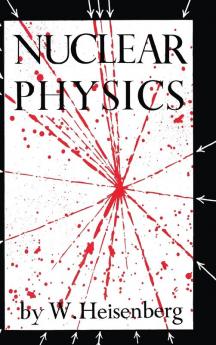English
Hardback
₹1404
₹2400
41.5% OFF
(All inclusive*)
Delivery Options
Please enter pincode to check delivery time.
*COD & Shipping Charges may apply on certain items.
Review final details at checkout.
Looking to place a bulk order? SUBMIT DETAILS
About The Book
Description
Author
From the Nobel Prize-winning physicist who developed the famous uncertainty principle Nuclear Physics provides an in-depth look at the study of the atom. The book was compiled from a series of Heisenbergs lectures on the subject and it is detailed and accessible enough for anyone interested in the subject. Heisenberg begins with a short history of atomic physics before delving into the theory of the processes and reactions within the atom. Nuclear Physics is an essential book to understanding the atom giving readers an unparalleled look at nuclear physics from one of the greatest scientific minds of the twentieth century. A controversial WWII figure Werner Heisenberg was a German physicist. Born in 1901 to an academic family Heisenberg was interested in scientific and philosophical pursuits from a young age. After graduating from the University of Munich where he studied under physicist Arthur Sommerfield Heisenberg went on to establish a career in the study of atomic and particle theory. He won the Nobel Prize in 1932 for his Uncertainty Principle. Heisenberg was one of the top German scientists during World War II and he worked as the director of the German Uranium Project developing an atomic bomb for Germany. He did not succeed in this effort however before the end of the war. He was incarcerated from 1945-46 for his role in the Nazi regime but in the 50s and 60s Heisenberg continued to contribute his research to the field of nuclear physics. He retired in 1970 and resided in Munich until his death in 1973.
Delivery Options
Please enter pincode to check delivery time.
*COD & Shipping Charges may apply on certain items.
Review final details at checkout.
Details
ISBN 13
9780802207067
Publication Date
-01-01-1953
Pages
-236
Weight
-414 grams
Dimensions
-152x229x17.46 mm











